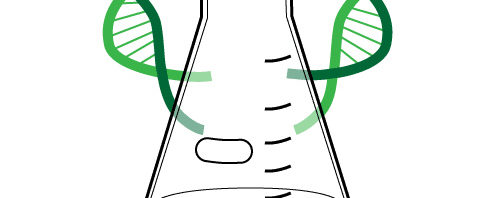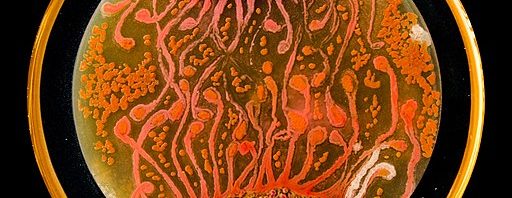This article discusses the knowledge market actors, which I argue are institutions, instruments, and individuals. Knowledge-based hierarchy or inequality in a neoliberal context is creating the conditions for gaming, where competition, productivity, and efficiency are the norms of climbing in the hierarchy. I contend that what accounts for the knowledge management strategies is academic platforms as a new meta-medium which holds large portion of data while enabling faster better cheaper knowledge transactions. Platforms are promising a larger share to non-experts in the market while they are cheering up for automation and open science.
Category: Philosophy of Science
Levellers and diggers in modern times
The discussion of Levellers and Diggers in recent STS community base their roots on the Lippmann-Dewey Debate in 1920s. The main question they were circling around was that “how to locate the roles of expertise in a functioning democracy”. The one thing they agreed upon was the problem of public and its definition. Dewey advocated that the public must get organized and educated to deal with the problems emerged in the state. In contrast, Lippmann considered the public as an abstract entity and paved the way for the modern neoliberal aphorisms about irrational citizens. The contemporary fellow of Dewey would be Jasonoff as a Leveller and the fellow of Lippmann would be Oreskes as a Digger.
Possible traps of open science
Open science movement was the concept I heard first when I was translating news about Sci-Hub and its creator Aleksandra Elbakyan for a science magazine. The title of the first article was ‘“Who’s downloading pirated papers? Everyone” as published on Sciencemag April 2016. The second one was an interview: “Meet Alexandra Elbakyan, the researcher who’s breaking the law to make science free for all” on Vox February 2016. I was fascinated by the idea of free access as a master student who did not access majority of science journals in Turkey unless you are unaware of the existence of Sci-Hub. Being retrospective, I totally understand the hype about open science now; however, knowing that degrading expertise and relying on big data for future manipulations are two giant turnarounds in front of us, I have become a skeptical of open science and the reasons are elaborated in the following parts.
Peer review?
The organization and application of science policies in the US dictated how science conducted and how scientist would approach science. The measure of successful and sometimes valuable/profitable science is the practice of peer review with procedural changes. The three regimes in policies can be restated as follows: the first term with the driving force of industry, the second term with the driving force of military, and the third term with the driving force of market. Therefore, peer review process should be analyzed under different sources of motivation in the contemporary history.
The three regimes of science policy in Turkey
The three regimes discussed for the US are not entirely true for my country of choice, which is Turkey. The historical and structural reasons are worth to discuss in terms of placing non-western countries to the scheme. While WW1 was happening on lands far away from the US, it had some devastating effects for the losing side. Specifically, Germany faced with very heavy economical conditions and left without any military support, while the Ottoman Empire entirely collapsed and the mainland Turkey was invaded by English, French, Italian, Russian, and Greek armies. After ongoing wars from 1919 to 1924, the Republic of Turkey gained its independence and started to build its modern institutions. The chronological development of science policies can be investigated in three periods: 1924-1950 the cultural revolution, 1950-1980 private/state back and forth, 1980-today the neoliberal adaptation.
Continue reading “The three regimes of science policy in Turkey”
The three different regimes of science policy and funding in 20th century America
After WW2, the world was paralyzed with the consequences of being exposed to cruelty in a large extent. Soon after, due to the practices of Nazi scientists, medical doctors and Atomic Bomb experimenters in the US, the perception of science has been altered abruptly in a way that scientific activities can trigger the monstrous aspects of human nature, almost in a sense of the Frankestein’s creator. Interestingly, the dimensions of science policies, how science is identified by experts and public, and the reactions of the state towards scientists have been deformed/evolved during the war times. To that end, three different regimes are recognized in 20th century America: WW1-1940, 1940-1980, 1980-today (Mirowski, 2004, p. 290).
Continue reading “The three different regimes of science policy and funding in 20th century America”
Three definitions of ignorance
The history of ignorance is moving hand-to-hand with the history of knowledge as emphasized in Verburgt’s recent paper, The History of Knowledge and The Future History of Ignorance: “(…) the history of knowledge does not just expand the boundaries of the history of science but investigates the boundaries between different forms of science, different forms of knowledge, and different forms of not knowing, in all possible combinations.” (Verburgt, 2020, p. 18).
Future of Conservation: Instrumental Value of Artifactualness
With concerns of the current climate change, I feel the urge to reevaluate our conservation attempts to act fast and reasonable while leaving no one behind. The definitions and attributed roles of nature and being natural have been formed in a way that saving modified organisms might become idle. I propose a conservation assessment of species based on their instrumental value without excluding genetically, physiologically, or naturally modified organisms. I redefined being artifactual as being shaped by humans directly or indirectly. Indirect effects are attributed to the recent human activities boosting global climate change. As a result, almost all species are sharing one more common thing in my view: being artifactual. Conservation strategies can be modified by evaluating species for their functionality in an ecosystem via their instrumental values regardless of being natural.
Continue reading “Future of Conservation: Instrumental Value of Artifactualness”
Can an algorithm predict an unknown physical phenomenon by analyzing patterns and relations buried in clusters of data?
This article investigates whether an algorithm can provide an undiscovered physical phenomenon by detecting patterns in the region where the data collected. The pattern recognition is considered with the basis of inferential statistics, which differs from descriptive statistics, as McAllister implied. I assert that physical patterns should be correlated with mathematical expressions, which are interconnected with the physical (quantitative) laws. The known unknows, e.g. gravitons, and the unknown unknowns, e.g. fifth force of the universe, are examined in the sense of learning capabilities of an algorithm based on empirical data. I claim there is no obstacle preventing algorithms from discovering new phenomena.
Values in Science
In defense of the value free ideal, Gregor Betz
- the most important distinction:
“The methodological critique is not only ill-founded, but distracts from the crucial methodological challenge scientific policy advice faces today, namely the appropriate description and communication of knowledge gaps and uncertainty.”









Recent Comments